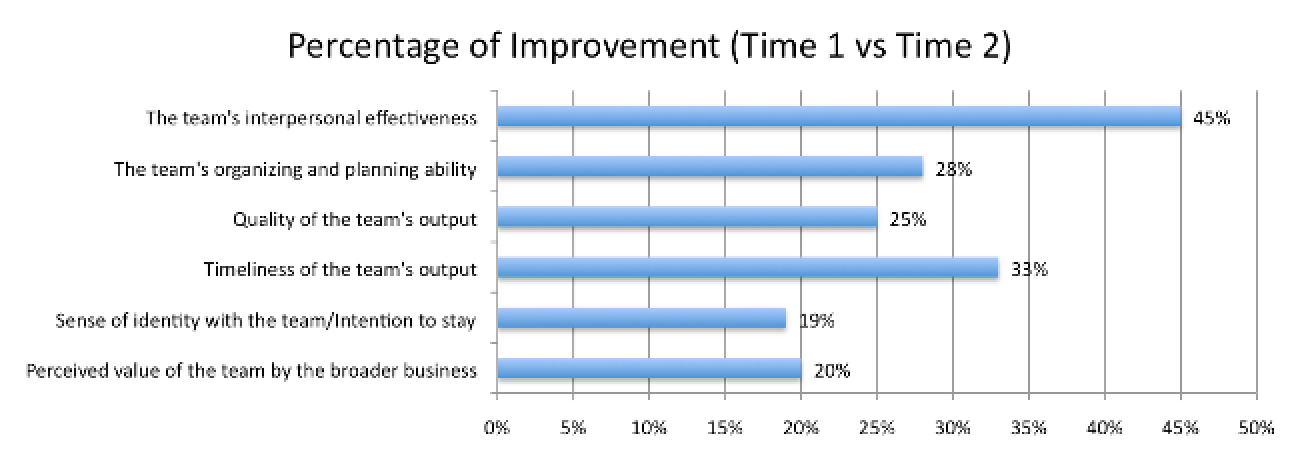case study
Large-Scale Change Projects in the Retail Sector

This case study covers our work with a substantial Australian retail company that is home to a considerable amount of sub-enterprises and brands. The retail giant was exploring the possibility of moving to a shared-services model and chose Genos to assist them with this transition.
The large-scale change projects, which needed to take place in order to facilitate a centralized operation for different departments of the organization, meant that operational departments such as HR, Finance and IT experienced some disruption. As is often the case with transformational projects, these large-scale changes can have a dramatic effect on employee engagement, talent retention and performance, while driving fear, negative behaviors and resistance.
The Genos Solution
Genos delivered a Leadership Development Program to improve the project team leader’s capacity to positively influence others, manage resistance to change, and improve employee engagement.
Based on the Genos model of Emotional Intelligence the program involved:
A Time 1, 360-degree assessment of each leader’s emotional intelligence and the levels of employee engagement among their direct reports at the outset
One full-day and two half-day workshops on how to utilize emotional intelligence skills to positively influence others and manage resistance to change
Seven one-on-one coaching sessions to improve leaders’ capacity to perceive, understand, express, and create positive emotions in the workplace
A Time 2, 360-degree assessment of each leader’s emotional intelligence and the levels of employee engagement among their direct reports to help determine the ROI of the program.
Research on the relationship between levels of employee engagement and business performance is clear, robust, and well-established. Organizations that achieve high levels of employee engagement on average achieve 3.9 times earnings per share greater than competitor organizations with average or low levels of employee engagement.
“The Genos program helped us realise you can have the right technical solution but unless you can inspire people to help you deliver it, the solution is worthless. The skills we learned on the Genos program will stay with us forever and be useful not only on other change projects we drive but also outside of the workplace in our private lives as well.” -Participant
The Results
The graph below illustrates how the leaders' emotional intelligence improved in all competencies of the Genos model.

Once the Genos program had been completed by all participating leaders within the retail organization, the transformation was clear for all to see. Leaders were now more self-aware and were quite conscious of the impact their own emotions and moods could have on others. The leaders were now more competent at expressing their emotions, which resulted in them being perceived more trustworthy and genuine. The leaders had also learned to utilize emotional information to reason more productively and manage emotions more effectively.
Prior to taking part in the Genos Program, the leaders, as you would expect, were thinking and leading in a rational way. Any decisions they made were based purely on real data, figures and facts. The solutions and decisions they were working to execute were right, however; how they were executing them was driving resistance and disengagement.
Upon successful completion of the Genos program, leaders now showed emotional intelligence on a different level. The leaders were now demonstrating emotional reasoning and making important decisions that were no longer solely based on facts and figures but also on other’s potential emotional responses to these decisions. Post program completion, leaders were now in regular consultation with others and were encouraging a more involved and inclusive environment.
This also had a positive impact on employee engagement. The graph below illustrates just how much employee engagement increased when they were involved in the change process.
The Impact

The above results show that employees now felt they had an important role to play in the new direction the organization was taking and expressed opinions that the leaders were now displaying more effective interpersonal, organizational and planning skills.
Our report also showed that employees perceived other positive changes within the workplace. Staff felt more involved and valued by the organization as a whole and were less likely to leave the organization.
Feedback
In their post-program feedback, participants clearly stated that the benefits of the program not only enhanced their performance but also contributed towards improved relationships between team members and managers. Previous to the program, reps and sales managers had been experiencing difficulty; this was mainly due to the large-scale merger changes that were taking part in the company. Post-program analysis shows that merger obstacles were overcome and the two cultures integrated.



